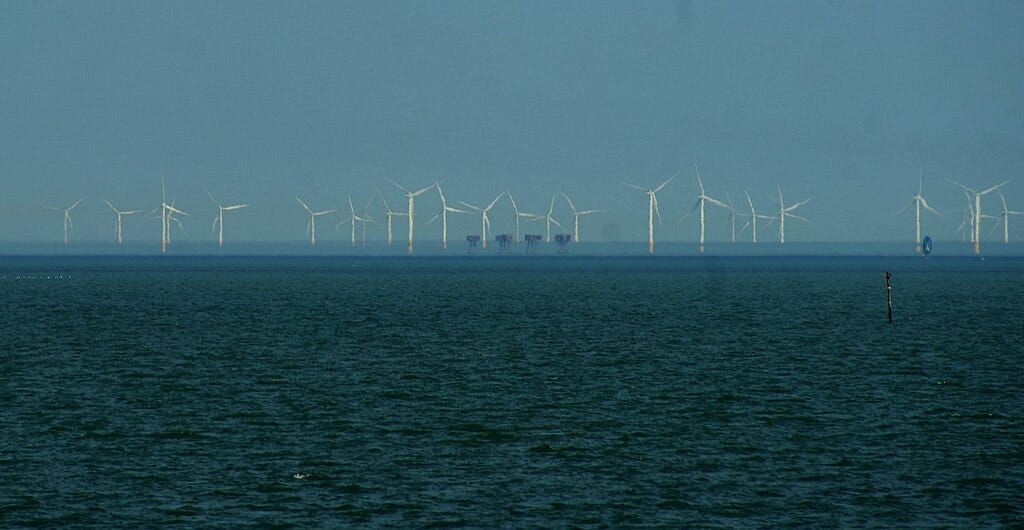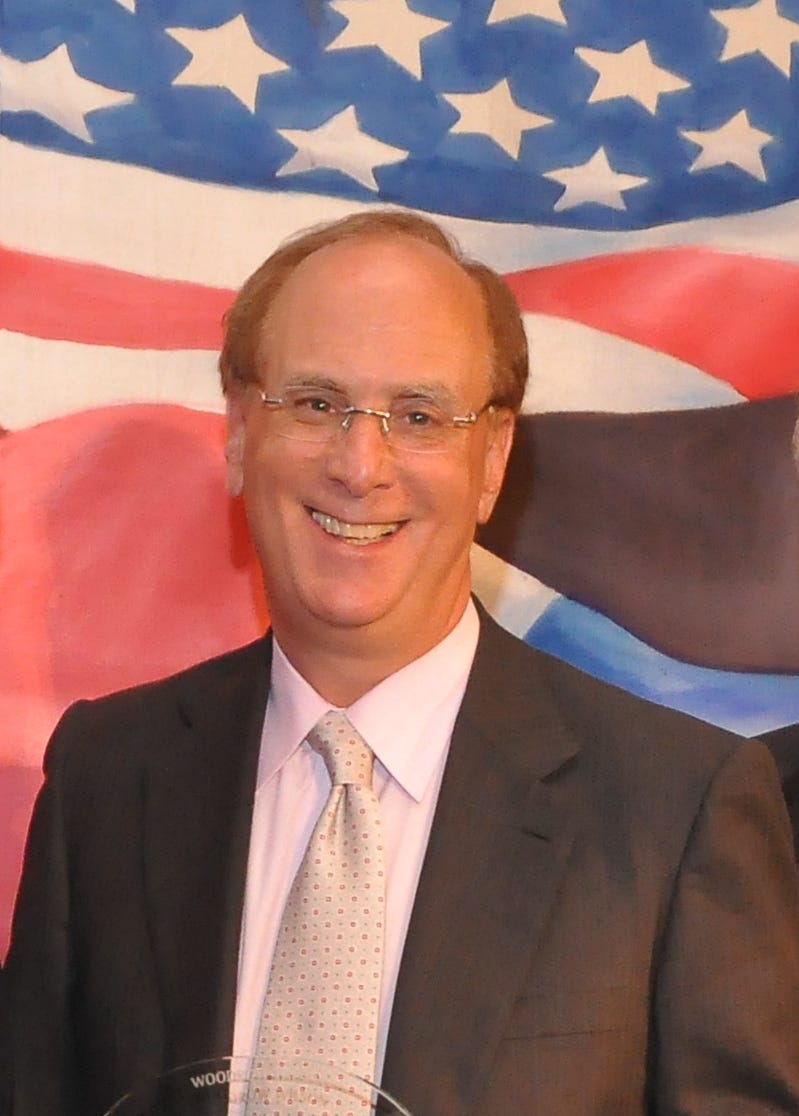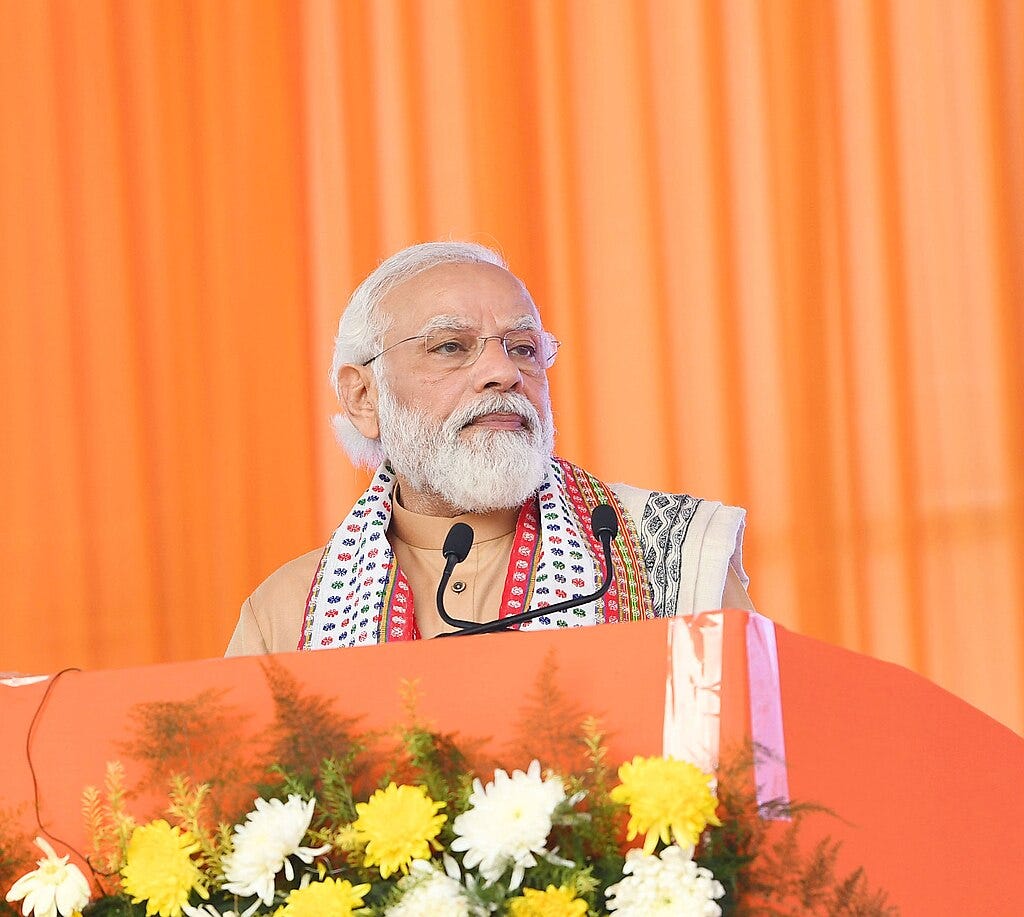News Round-Up: Woke Capitalism in Retreat, Economists on the High Price of Net Zero and India pushing for Musk's X to Censor Speech
Every week, the editorial team of Freedom Research compiles a round-up of news that caught our eye, or what felt like under-reported aspects of news deserving more attention.
Over the past week, the following topics attracted our attention:
Economists: push to Net Zero will cost much more than estimated.
Banks and corporations are putting the brakes on woke capitalism: ESG policies retreating.
India is clamping down on freedom of expression: Musk's X protests, but shuts down accounts deemed 'inappropriate' by the government.
Covid-19 vaccines and pregnancy: mRNA can spread systematically, and reach the placenta and infants.
Poll: the BBC is losing more and more viewers due to its woke-mindedness.
Economists: push to Net Zero will cost much more than estimated
Former International Monetary Fund (IMF) chief economist Olivier Blanchard says that reducing carbon emissions is necessary, but reorganising the economy and energy sector to reach Net Zero will be far more expensive than people currently imagine, reports The Telegraph. The cost of getting to Net Zero is not even known exactly, he said. “The public does not believe, or has not been made to understand, that is going to be costly for them. It is going to be costly and that message has to be sent out," he said, giving evidence to the UK Parliament House of Lords Economic Affairs Committee.
Blanchard also said that financing such a big change through tax rises was probably not possible and governments would have to borrow more.

The Office for Budget Responsibility (OBR) has previously estimated that reaching Net Zero by 2050 would cost £1.4 trillion (€1.64 trillion) over the next three decades, but as the transition would help reduce costs, the net spending should be in the order of £300 billion (€351 billion). However, Oxford University economics professor Sir Dieter Helm commented that it was “delusory to think” that getting there would pay for itself. He also estimates that the cost will be much higher than is currently thought. Helm, who also advised former British Prime Minister Boris Johnson, called the then government's climate plans “hopelessly unrealistic”.
A third economist, Charles Goodhart, pointed out that carbon-neutral policies will remain popular until people are asked to pay for them.
In practical terms, Net Zero means drastically reducing anthropogenic CO2 emissions and phasing out fossil fuels, currently the most widely used energy source. However, replacing it with wind, solar, and nuclear is costly and without controllable capacity, the first two will also pose problems for the security of the electricity supply.
Banks and corporations are putting the brakes on woke capitalism: ESG policies retreating
The pursuit of ESG policies, often referred to as 'woke capitalism', has been making little headway in the world's big companies lately. ESG – Environmental, Social and Governance – is described as a policy that makes a company sustainable and responsible if adopted. The company then supposedly takes into account the impact of environmental, social and governance factors in its operations. In real terms it means that companies are judged on their contribution to the fight against climate change and on their support for so-called Diversity, Equity and Inclusion (DEI) policies, which, for example, require that the suitability of potential employees is assessed at the recruitment stage, taking into account not only their skills but also their origin, ethnicity, race, sexual orientation, etc. Businesses are also judged on whether and how supportive they are of currently popular 'diversity' issues, be they trans-ideology, Black Lives Matter, etc. The company's ESG score is calculated based on how 'perfectly' a company implements these policies. The score affects the company's access to capital for example.
In the case of climate issues, one example is that big banks and capital funds have been careful in recent years not to invest in fossil fuel-related projects. Now, however, this behaviour is changing in the US because of anti-ESG attitudes, writes The Hill. One of the reasons, according to the outlet, is the more stringent federal oversight. Another development is that some states are introducing bills to blacklist and in some cases criminalize banks that refuse to invest in fossil fuels.
In the wake of these developments, asset management firm State Street and investment bank JPMorgan Chase announced last week that they are withdrawing from Climate Action 100+, the investment initiative highlighting the climate fight. Prior to that, another major bank, Bank of America, had backtracked on a pledge to stop financing new coal mining, transport, or burning projects. It also reversed a pledge not to fund oil exploration in Africa.
Likewise, some ESG backtracking has been undertaken by BlackRock, an asset management firm that has become a symbol of the policy, and by its head Larry Fink, who stated at an energy conference in Texas in early February that the asset management firm would help the state raise $10 billion (€9.2 billion) to build fossil fuel power plants.

The number of ESG-related jobs in large US companies is also declining. For example, in December, Meta, Amazon, Google, and other large companies collectively cut more than 3,000 ESG jobs, reports The Daily Mail. At the same time, 2,897 people were recruited to such positions, with a reduction of 174 jobs. While last year, a total of 40,884 ESG workers were hired and 39,542 left – i.e. with the number of hires still standing higher – the change is still significant compared to previous years. In the five years preceding last year, the average number of ESG workers recruited exceeded the number of ESG workers leaving their jobs by 15,000.
India is clamping down on freedom of expression: Musk's X protests, but shuts down accounts deemed 'inappropriate' by the government
X, the social media platform owned by Elon Musk, who stresses the importance of freedom of expression, has announced that, under pressure from the Indian government, it has shut down some of the accounts that, according to local press reports, are linked to the farmers' protests currently taking place in the country, Reuters reports.
X did not provide further details on the removal of the accounts and the Indian government's demands but noted that the closure of the accounts amounted to a restriction on freedom of expression and that the company itself did not agree with such a decision. “We will withhold these accounts and posts in India alone; however, we disagree with these actions and maintain that freedom of expression should extend to these posts,” X's Global Government Affairs said in a post, without naming specific accounts.
India's Prime Minister Narendra Modi's government has in the past repeatedly criticised major tech companies for not doing enough to prevent the spread of information it calls fake or to combat "anti-India" content. In addition to X, Facebook, and Google, for example, have also been criticised.

The Indian government's move comes in the wake of a week-long protest by Indian farmers. Thousands of protesting farmers are demanding a higher price for their produce. They have now set up camp 200 kilometers north of the country's capital New Delhi. Their plan was actually to march to the capital, but they were blocked by the police, who used tear gas, among other measures, to drive the farmers back.
Covid-19 vaccines and pregnancy: mRNA can spread systematically, reaches placenta and infants
A peer-reviewed study published in The American Journal of Obstetrics and Gynecology shows that mRNA vaccines do not remain in or around the injection site after vaccination, but can spread systemically throughout the body, including to the placenta and umbilical cord blood of infants whose mothers are vaccinated during pregnancy, reports The Epoch Times.
Researchers vaccinated two pregnant women with mRNA vaccines shortly before delivery to determine whether the mRNA in Covid vaccines reaches the placenta or the fetus after the mother is vaccinated. The study is the first to show that this is indeed the case. In addition, the researchers also detected spike protein in placental tissue, indicating the bioactivity of the mRNA in reaching the placenta. The study did not evaluate the implications of transient spike protein expression in the placenta or the effects of degraded mRNA on the fetus.

Gynaecologist Dr Christiane Northrup commented to The Epoch Times that the study does not actually reveal anything new. She says there was in fact no doubt that the vaccine would reach the placenta and that its components would be detectable throughout the body. She pointed out that this posed serious risks and could clearly be illustrated by the cases of vaccinated pregnant women reported to the Vaccine Adverse Event Reporting System (VAERS) in the United States. For example, there are reports of infants dying from thrombocytopenia when the mother has previously been vaccinated or examples of heart attacks in fetuses and infants. "None of this (the facts reported in the study - HS) is new information. It has simply been widely and systematically censored," Northurp noted.
At the height of the Covid crisis, health authorities were urging mRNA injections for pregnant women. The European Medicines Agency (EMA) claimed as recently as January 2022 that these vaccines were safe for pregnant women and their fetuses. “The review of real world evidence suggests that the benefits of receiving mRNA Covid-19 vaccines during pregnancy outweighs any possible risks for expectant mothers and unborn babies,” they wrote.
Poll: the BBC is losing more and more viewers due to its woke-mindedness
A recent British opinion poll showed that viewers whom the polling company considered 'working class' were watching less and less of the British broadcaster BBC. The reason why they are looking for information elsewhere, according to the respondents, lies in the BBC being too woke, reports The Daily Mail.
More than half of the respondents to a poll of more than 2,000 participants said the BBC's quality had declined and become too 'politically correct'. And so, preferences among working class people have now changed, with more and more people in Britain watching conservative channels such as GB News and Talk TV.

Commenting on the issue at the House of Lords committee, James Frayne, a founding partner of Public First, the company that carried out the survey, warned that a similar attitude – to prefer to seek information from channels other than the BBC – could develop in other demographic groups.
The chairwoman of the inquiry, Baroness Tina Stowell of Beeston, said the inquiry would also look into impartial news coverage of topics including Net Zero and immigration. Stowell said that news coverage had to meet 'audience expectations that diverse experiences be reflected and to not be patronised.'
The BBC also came under scrutiny in the UK some weeks ago because of its recruitment policy, which states that it should not employ people with a hardline stance on 'diversity and inclusion' (DEI policies).


